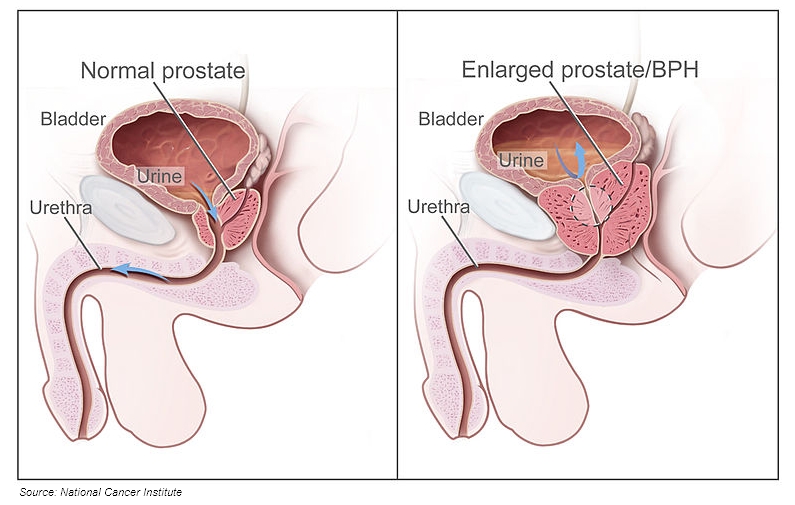BPH may present with lower urinary tract symptoms (LUTS), including:
- Weakened urinary stream
- Difficulty initiating urination
- Intermittent urinary flow
- Straining to urinate
- Urinary urgency
- Increased frequency of urination, including nocturia (nighttime urination)
- Sensation of incomplete bladder emptying
- Post-void dribbling
It is important to note that these symptoms can also result from other conditions, such as urinary stones, infections, overactive bladder, or prostate/bladder cancer. If you experience any of these symptoms, consult a doctor for further assessment.
















